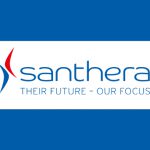
Solid Biosciences reports efficacy and safety data from the ongoing IGNITE DMD clinical trial and resumption of patient dosing in the 2E14 VG/kg cohort.
La Force is sharing this press release provided by Solid Biosciences, March 15, 2021, original press release
- Interim data from six patients provide evidence of a potential benefit of SGT-001 in functional endpoints of North Star Ambulatory Assessments (NSAA), 6-minute walk test (6MWT), pulmonary function tests (PFTs), and clinically validated patient-reported outcome measures (PROMs)
- Patient 7, safely dosed with SGT-001, experienced transient and manageable adverse events, none of which were serious; six patients previously dosed showed no new drug-related safety findings 17-37 months post-dosing; screening and enrollment of patients into IGNITE DMD continue.
Solid Biosciences Inc., a life sciences company focused on advancing meaningful therapies for Duchenne muscular dystrophy, reported encouraging interim functional (NSAA, 6MWT and PFTs) and biomarker data, and patient-reported outcome measures (PROMs) from six patients after treatment in the ongoing IGNITE DMD Phase I/II clinical trial of its lead gene therapy candidate, SGT-001. The Company also announced that patient 7 in IGNITE DMD was safely dosed, with transient and manageable adverse events, none of which were serious. Patient 7 was the first patient dosed in IGNITE DMD under a previously reported clinical protocol amendment and using SGT-001 manufactured with its second-generation process. The six patients previously dosed showed no new drug-related safety findings, 17-37 months post-dosing. The totality of data collected, and the re-initiation of dosing, support the continued enrollment of patients into the IGNITE DMD study.
These data will also be presented in an oral session and at a company-sponsored symposium at the 2021 MDA Virtual Clinical & Scientific Conference on Thursday, March 18.
Barry Byrne, M.D., Ph.D., Associate Chair of Pediatrics and Director of the Powell Gene Therapy Center at the University of Florida, and Principal Investigator of the IGNITE DMD clinical study – “The totality of the functional and biomarker data, as well as the patient-reported outcome measures, reported today to suggest that SGT-001 may provide benefit to patients with Duchenne, a serious disease for which there is no cure. I am particularly encouraged by these early data when compared with the natural history of this disease. I look forward to the continued enrollment in IGNITE DMD and evaluating the data as the study progresses.”
Ilan Ganot, Chief Executive Officer, President and Co-Founder of Solid Biosciences – “We are encouraged with the successful resumption of dosing in the IGNITE DMD trial under our amended clinical protocol and using SGT-001 manufactured with a second-generation process. The seventh patient’s safe dosing gives us increased confidence in our dosing strategy as we move forward with clinical development in the IGNITE DMD clinical trial. We are grateful to this patient and his family and all those who choose to participate in clinical trials. We look forward to continuing to dose patients and reporting clinical outcomes from additional patients in the second half of 2021.”
IGNITE DMD Data
The data reported were collected from the first six patients dosed in IGNITE DMD 12 to 24 months after treatment and include data from three patients dosed at the low dose (5E13 VG/kg) and three patients dosed at the high dose (2E14 VG/kg). Data from the delayed treatment cohort, analyzed as an untreated control cohort, were evaluated alongside representative natural history data. The six patients ranged in age from five to 14-years-old at baseline. These data have been previously shared with the FDA and members of the IGNITE DMD Data Safety Monitoring Board and clinical consultants.
Functional Data
- Among patients in the low and high dose cohorts, North Star Ambulatory Assessment (NSAA) scores at one year suggest benefit after treatment as compared to trajectories typically observed in natural history data. Natural history analyses suggest that patients similarly aged to those enrolled in IGNITE DMD would normally be expected to exhibit year-over-year disease progression ranging from a plateau in gains to a 3 to 3.7-point decline. Patients in the untreated control cohort exhibited a mean decline of 4.0 points from baseline to 1 year. In contrast, patients in the low-dose cohort exhibited a mean improvement of 1.0 point over the same period of time. Patients in the high-dose cohort exhibited a mean improvement of 0.3 points as compared to their baseline values.
- Mean increase in the 6-Minute Walk Test (6MWT) distance was above the generally accepted minimally clinically important difference (MCID) of 30 meters in both the low- and high-dose cohorts after treatment. While patients in the untreated control cohort exhibited a decline of 8.5 meters from baseline to one year, patients in the low-dose cohort exhibited a mean improvement of 37 meters. Patients in the high-dose cohort exhibited an improvement of 49.7 meters over the same period.
- Concerning pulmonary function tests (PFTs), most patients in both dose groups exhibited improved forced vital capacity (% predicted FVC) at one year when declines in pulmonary function would otherwise be typically observed in patients with Duchenne. From baseline to one year, patients in the untreated control cohort exhibited a mean decline of 10.7% on an absolute basis. In contrast, patients in the low-dose and high-dose cohorts exhibited a mean improvement of 3.9% and 16.7%, respectively, over the same period.
Biomarker Data
- As previously reported, biopsies of skeletal muscle three months after a single infusion of SGT-001 at a dose of 2E14vg/kg demonstrated the widespread distribution of microdystrophin-positive muscle fibres with co-localization of neuronal nitric oxide synthase (nNOS) and β-sarcoglycan in the muscles of these patients.
- Creatine kinase (CK) assessments of the six patients provide potential physiological evidence of a positive or stabilizing effect after one year of treatment with a single high-dose infusion of SGT-001. An average sustained CK decline of approximately 50% in patients in the high-dose cohort was observed. In the low-dose cohort, an average CK increase of approximately 166% was observed, and in the control group, an average CK increase of approximately 17% was observed.
Patient Reported Outcome Measures (PROMs) Data
Patient reported outcome measures taken after one year of treatment revealed a trend towards dose-ordered improvements in motor function subscales and fatigability assessments, providing real-world evidence to support the clinical and biomarker findings of varying degrees of benefit to patients in the low- and high- dose cohorts.
- Meaningful improvements were demonstrated in the Pediatric Outcomes Data Collection Instrument (PODCI), a validated PROM that contains questions to assess how caregivers and children evaluate the child’s ability to walk, stand, and perform daily living, as well as recreational activities. Motor function scores reflect the gains seen in 6MWT and the benefit of NSAA observed in all dosed patients.
- Semi-structured, qualitative interviews conducted by Modus Outcomes Ltd with patients and caregivers about the impact of Duchenne on functioning demonstrated overall improvement in the functional activity and school-related impacts (e.g., lower limb mobility, keeping up with peers, climbing stairs, sports) in low- and high-dose cohorts, with subjective decreased fatigability in all patients of both treatment cohorts.
As previously reported, three of the first six patients dosed before the protocol amendments introduced in 2020 developed four serious adverse events (SAEs). All prior SAEs have fully resolved, and no new drug-related safety findings have been identified with post-dosing follow-up of 17-37 months. Additionally, as reported today, with the resumption of dosing in IGNITE DMD, patient 7 was dosed safely with mild to moderate adverse events, all of which have fully resolved. The resumption of dosing was under an amended clinical protocol and using SGT-001 manufactured with an improved process, both designed to enhance patient safety.
About SGT-001
Solid’s SGT-001 is a novel adeno-associated viral (AAV) vector-mediated gene transfer therapy designed to address the underlying genetic cause of Duchenne. Duchenne is caused by mutations in the dystrophin gene that result in the absence or near absence of dystrophin protein. SGT-001 is a systemically administered candidate that delivers a synthetic dystrophin gene, called microdystrophin, to the body. This microdystrophin encodes for a functional protein surrogate expressed in muscles and stabilizes essential associated proteins, including neuronal nitric oxide synthase (nNOS). Data from Solid’s clinical program suggests that SGT-001 has the potential to slow or stop the progression of Duchenne, regardless of genetic mutation or disease stage.
SGT-001 is based on pioneering research in dystrophin biology by Dr. Jeffrey Chamberlain of the University of Washington and Dr. Dongsheng Duan of the University of Missouri. SGT-001 has been granted Rare Pediatric Disease Designation, or RPDD, and Fast Track Designation in the United States and Orphan Drug Designations in both the United States and European Union.
In case you don’t remember the specifics about microdystrophin and gene therapy we invite you to watch the interview we conducted in London with Dr. Jeffrey Chamberlain PH.D.: Here
About Solid Biosciences
Solid Biosciences is a life sciences company focused on advancing transformative treatments to improve patients’ lives with Duchenne. Disease-focused and founded by a family directly impacted by Duchenne, our mandate is simple yet comprehensive – work to address the disease at its core by correcting the underlying mutation that causes Duchenne with our lead gene therapy candidate, SGT-001. For more information, please visit www.solidbio.com.
About DMD
Duchenne muscular dystrophy (DMD) is a disease that almost exclusively affects boys and whose incidence is 1 in 3,500. It is extremely rare that Duchenne muscular dystrophy (DMD) will affect girls. Those affected are usually diagnosed around the age of five, but symptoms may be visible from early childhood. It is a degenerative disease of the muscles caused by a genetic mutation. The Duchenne muscular dystrophy (DMD) – for which no treatment is currently available – directly affects skeletal muscles. Without treatment, the consequences of the disease are dire for those afflicted and their families.



